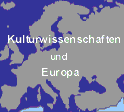
 |
Cultural Processes and Transdisciplinary Research |
|
Cultural processes comprise all procedures through which people transform the world as it is into a world of our own. This includes all group specific norms and rules, values and ideas, information and knowledge as represented, exchanged, appropriated, altered and created anew in the process of communication.
A retrospective survey of these procedures prompts a study of the history and reconstruction of the development of cultures in their given forms. Alternatively, comparing such processes, which occur simultaneously among various groups of people, highlights contrasts between them. This is particularly true in scientific work.
Scientific examination of complex phenomena demands a complex approach. Traditional divisions between academic disciplines prove increasingly to be highly inappropriate to the observation of socio-cultural phenomena. As the discussion of various cultural concepts indicates, a number of academic disciplines have selected aspects of culture and used them as a basis for their particular theory. (These aspects of culture include language, literature, society, history, philosophy, recognition theory etc.) The founding of cultural studies is a logical consequence of this contradiction between methods and objects of inquiry. Cultural studies is able to combine many of the above mentioned aspects in a cognitive model from which more powerful methods of inquiry and description can be derived. However, moving from concentration on a single discipline to a multidisciplinary approach dealing concurrently with numerous theories is inadequate. Equally, combining various theories in an interdisciplinary cognitive model cannot overcome the respective one-dimensional approaches to phenomena, as the limitations of each individual theory remain unchallenged. Only a more radical step, namely transdisciplinary initiatives, can lead to a comprehensive approach adequate to the complexity of the phenomena. A genuine and consistent integration of various theories leads to a new theory functioning at a higher, emergent level of perception. That is precisely the goal of cultural studies research. However, multidimensional cultural concepts exemplify that transdisciplinarity doesn't mean preserving distinctions, but instead integrates them in a cognitive model and places them in relation to one another.
Research methods also have to be adjusted and further developed if we are to effectively comprehend and describe, through cultural studies, the appearance, alteration and influence of other social factors on cultural processes. This has been amply demonstrated in the development of cross-cultural management research in recent years, which allows economic processes to be described in a completely new way and shows that theories of economic science can be enriched by cultural studies concepts and thereby permanently transformed. A rigid pattern of thinking in purely economic terms, which has meanwhile become a primary formative and ethical principal for many societies in the world, can be relativised and decisively expanded and changed. The ecology debate of recent decades on the sustainability of economic processes has already initiated this change in mentality. However, the recognition of ecological concerns in scientific thought and activity must under no circumstances be limited to the natural sciences. The social sciences and humanities must also grasp the fact that to build a transdisciplinary human and cultural ecology, economic modes of thought must be modified by cultural thought and activity and not just by environmental ideology. It is clear then that a comprehensive and dynamic cultural studies initiative should be employed on this basis to analyse actual contradictions between historical factors and tangible future social requirements and conditions and to deliver concrete solutions.
|
|
|
|
|
|
|